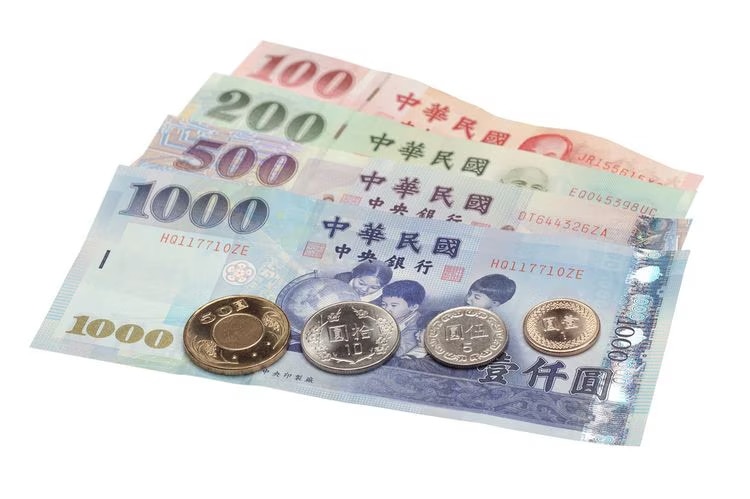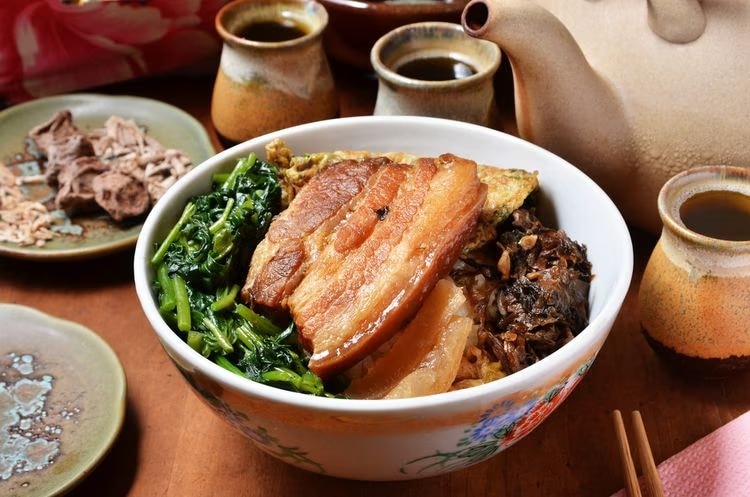-
2026/05/10
Seattle(SEA) -
2026/05/11
Taipei
(Updated: May, 21, 2025 15:03)
Taiwan Travel Tips and Information
Official Name
Taiwan
Capital
Taipei
Population
Country Code
Approximately 23.4 million people
TW
Country Code (international calls)
+886
The flight time to Taiwan is approximately 13~15 hours. Check the climate, currency, religion, manners, other information of Taiwan below. Wishing you pleasant travels to Taiwan.
Located in East Asia, Taiwan is an island country that is a part of the Republic of China. Its land area is almost the same as Davao Region, with a population of 23 million people.
Compare Airfares for Flights to Taiwan
Compare Airfares for Flights to Taiwan
Compare Airfares for Flights to Taiwan
Compare Airfares for Flights to Taiwan
Compare Airfares for Flights to Taiwan
Compare Airfares for Flights to Taiwan
Local Climate / Weather
Taiwan features a subtropical climate in the north and a tropical climate in the south, making it an appealing destination year-round. The country experiences four distinct seasons: spring (March to May), summer (June to August), autumn (September to November), and winter (December to February). Summers can be hot and humid, with temperatures averaging 30°C, while winters are mild, especially in the southern regions. When planning a visit, travelers should be mindful of typhoon season, which runs from June to October. During this period, it is advisable to check weather updates and be prepared for possible disruptions. The best time to visit Taiwan is during spring and autumn when the weather is pleasant, and outdoor activities such as hiking and sightseeing are ideal.
Currency & Tipping
Currency
The official currency of Taiwan is the New Taiwan Dollar (NTD), commonly abbreviated as TWD or symbolized as NT$. It's widely accepted across the country for both cash and card transactions. You can exchange at major airports, banks, and currency exchange outlets in Taiwan. ATMs are also readily available, and most international credit cards are accepted in hotels, restaurants, and larger establishments. However, it's a good idea to carry some cash for small shops, night markets, and transportation, where card payments may not be accepted.
Tipping
Tipping is not a common practice in Taiwan. Service charges, such as in restaurants or hotels, are usually already included in the bill. However, if you feel like offering a small tip for exceptional service, it will always be appreciated, but not expected. Taxi drivers also do not expect tips, and they typically round off the fare. In general, travelers visiting Taiwan can enjoy hassle-free service without the need to worry about tipping in most situations.
Useful Travel Information

Voltage & Electrical Outlets
The voltage is 110V (60Hz), and the outlets are Type A, with two flat metal prongs. However, Type C or Type O outlets may also be used, so caution is advised.

Internet Connectivity
There are several ways to access the internet, such as renting overseas Wi-Fi in home country or using paid services like Wifly. If you only need to use it occasionally, free Wi-Fi available throughout the country should suffice. In Taiwan, there are numerous public free Wi-Fi services designed for foreign tourists, which require only simple registration. These can be easily used at major tourist spots and hotels.
Water for Consumption (Drinking Water)
Tap water is hard water and not suitable for drinking directly. It is recommended to purchase mineral water.
Culture, Religion & Social Etiquette
Culture
Taiwanese culture is a blend of Chinese, Japanese, and indigenous influences, making it a unique destination for travelers. Festivals such as the Lunar New Year, Dragon Boat Festival, and Mid-Autumn Festival are deeply rooted in local tradition, offering colorful celebrations that showcase Taiwan's vibrant heritage. Taiwanese people value family, respect for elders, and hospitality. Traditional art forms, such as Chinese opera, tea ceremonies, and calligraphy, are also widely celebrated across the country.
Religion
The dominant religions in Taiwan are Buddhism, Taoism, and Confucianism, which shape much of the local customs and way of life. Temples are a common sight, and you may find people performing daily rituals like lighting incense and offering prayers to deities. Catholic and Christian communities are also present, and religious freedom is widely respected. Visiting Taiwan will appreciate the peaceful coexistence of different religious practices and how spiritual beliefs influence daily life and festivals.
Social Etiquette
Taiwanese people are generally polite and respectful. When visiting, it’s important to practice good manners, such as saying "thank you" (謝謝 xièxiè) and "hello" (你好 nǐhǎo). Showing respect to elders is important, and it’s common to offer both hands when giving or receiving items. When dining, avoid placing chopsticks upright in a bowl, as it symbolizes death. Public behavior is usually modest, and being considerate in public spaces, such as keeping noise levels low, is appreciated. Offering a small gift when visiting someone's home is considered polite, much like customs of hospitality.
Food Culture
Taiwan’s food culture is a rich blend of influences from China, Japan, and Southeast Asia, making it a popular culinary destination for travelers. Visitors will find that Taiwanese cuisine is known for its balance of flavors—sweet, savory, and sometimes spicy—all while using fresh ingredients. One of the best introductions to Taiwan's cuisine is through its iconic dishes like beef noodle soup, xiao long bao (soup dumplings), and braised pork rice, which can be found in local eateries and high-end restaurants alike. Taiwanese bubble tea, or boba, is also world-renowned, and trying it from a local shop is a must-do for food enthusiasts. Street food is a cornerstone of Taiwan’s food scene, with bustling night markets offering a variety of dishes. Must-try street food includes stinky tofu, which, despite its name, is beloved for its unique flavor, and oyster omelets, a savory treat often found at markets like Shilin or Raohe in Taipei. Chicken cutlets, grilled squid, and pineapple cakes are other street food favorites that provide a taste of Taiwan’s diversity. For those looking for recommended dining spots, Taiwan has no shortage of excellent local restaurants. In Taipei, Din Tai Fung is famous for its expertly crafted dumplings, while Ay-Chung Flour-Rice Noodle in Ximending offers a taste of traditional Taiwanese noodles. Taichung is home to Fengjia Night Market, where a wide array of street food delights await, and Tainan is the place to try dan zai noodles, a local specialty. Whether dining at a night market or a restaurant, Travelers can expect a flavorful culinary journey that reflects Taiwan's rich history and food traditions.
Major Tourist Attractions & UNESCO World Heritage Sites
Major Tourist Attractions
Taiwan is a popular destination for travelers, offering a wide range of tourist attractions that combine vibrant city life, stunning landscapes, and cultural heritage. Some must-visit destinations include: ・Taipei 101 – A world-renowned skyscraper and symbol of Taiwan, Taipei 101 offers an observatory with panoramic views of the city. travelers can enjoy shopping and dining at its high-end mall or experience a thrilling ride on one of the world’s fastest elevators. ・Taroko National Park – Famous for its breathtaking marble-walled gorges and scenic trails, this park is ideal for nature-loving travelers Visitors can hike the Shakadang Trail or cross the dramatic Swallow Grotto. ・Sun Moon Lake – A tranquil getaway known for its stunning sunrises and sunsets, Sun Moon Lake is a perfect spot for boating and cycling around the lake. This picturesque site offers a relaxing atmosphere for travelers seeking a peaceful escape. ・Chiang Kai-Shek Memorial Hall – A historical landmark in Taipei, this hall showcases Taiwan’s political history and the life of its former leader. It’s an important cultural stop for those interested in Taiwan’s past. ・National Palace Museum – Housing one of the world’s largest collections of Chinese artifacts, this museum is a must for history and art enthusiasts. Tourists can explore thousands of years of Chinese history through its impressive exhibitions.
UNESCO World Heritage Sites
・Kinmen and Matsu Islands – These islands, located off the coast of China, are known for their historical military sites and traditional Fujian-style architecture. Exploring these islands gives Visitors a glimpse into Taiwan's military past and coastal beauty. ・Tainan’s Anping Fort and Historic Sites – Considered the birthplace of Taiwan, Tainan’s historical sites, including Anping Fort and the Confucius Temple, offer insight into the island’s colonial history and ancient traditions.
Travel FAQs
Is English commonly spoken in Taiwan?
In popular tourist areas, many shops and restaurants cater to foreign tourists by offering services in English. However, in more local areas or smaller establishments such as street stalls, Chinese is typically the only language spoken.
How safe is Taiwan, and what should travelers be cautious about?
Taiwan is considered a safe country overall, but travelers should still exercise caution, especially when going out at night or traveling alone. It's important to stay alert to potential pickpocketing and to be more aware of traffic safety.
What are the main forms of transportation in Taiwan?
In cities like Taipei and Kaohsiung, the main transportation options include the MRT (subway), city buses, taxis, and rental bicycles (YouBike). For traveling to other regions such as Taichung or Tainan, options include long-distance buses, Taiwan Railways, and the Taiwan High-Speed Rail (HSR).
Do I need to tip when staying at a hotel in Taiwan for several nights?
Tipping is not a common practice in Taiwan. In upscale hotels, a service charge of around 10% is typically included in the bill, so there is no need to tip separately.




